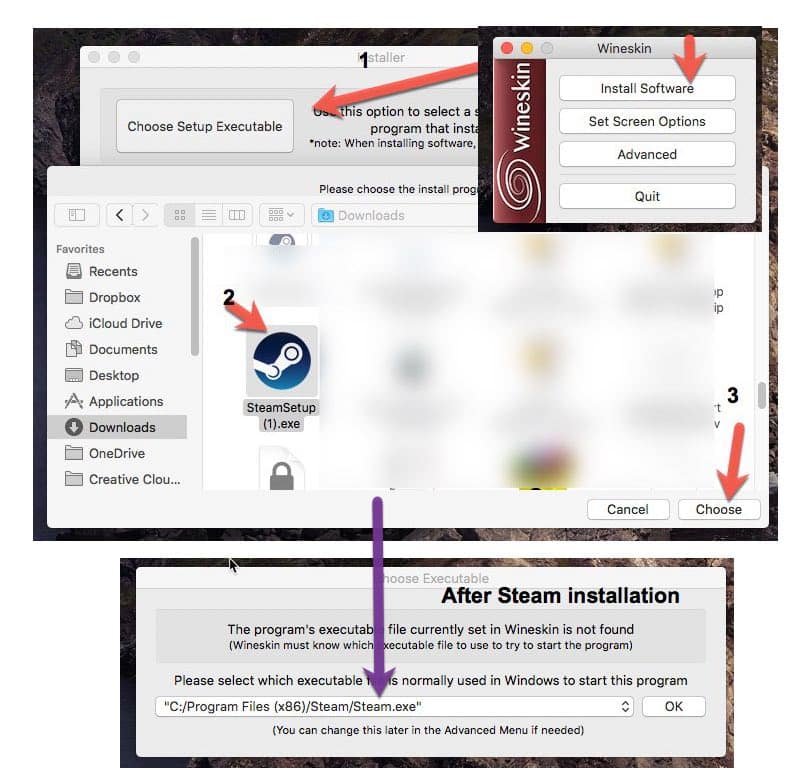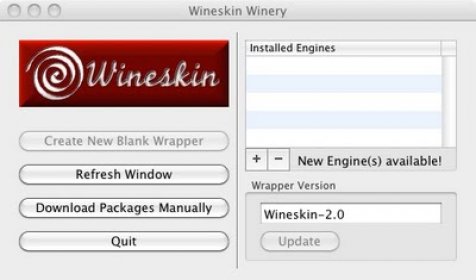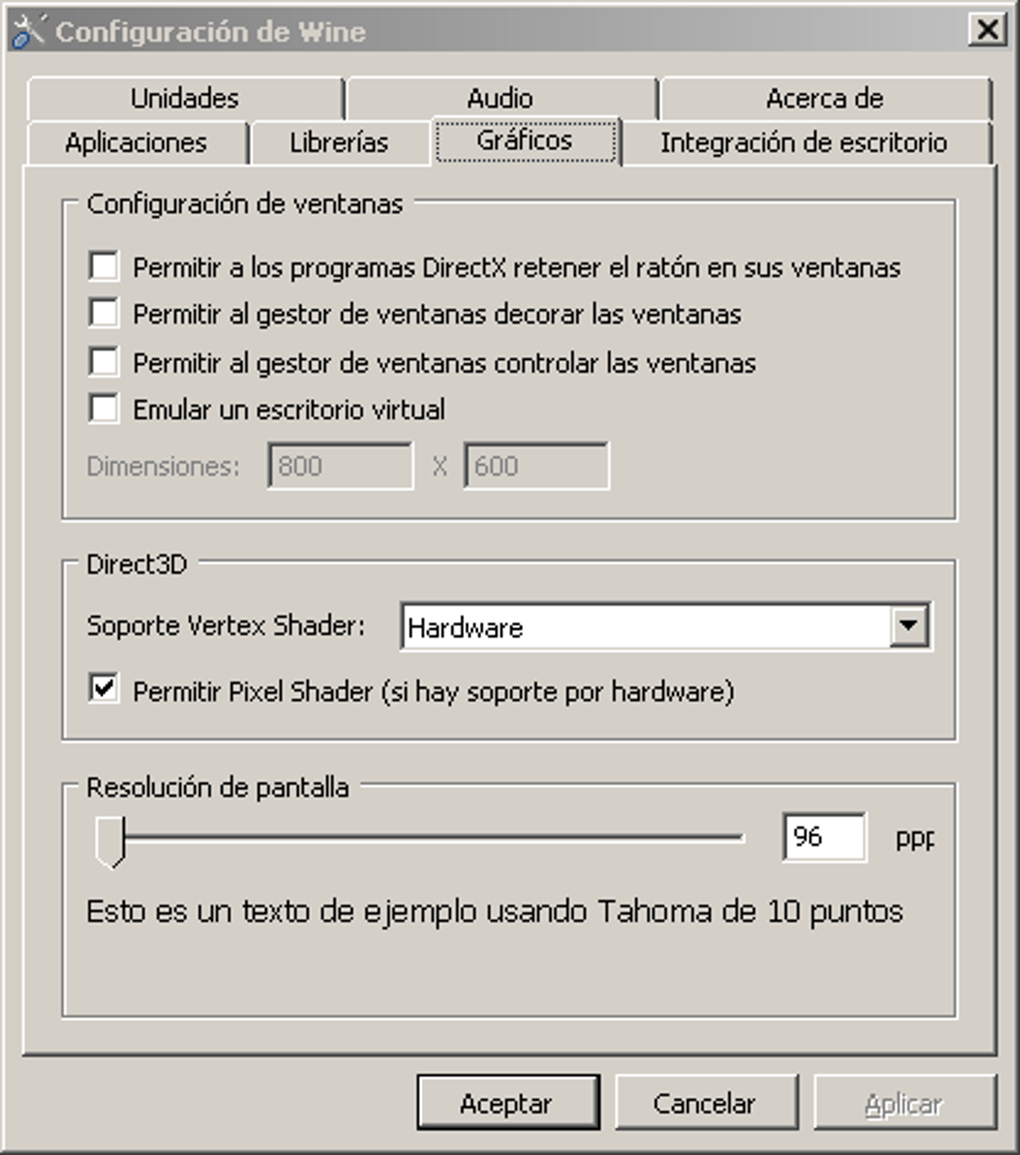macOS 10.14 Mojave is one of the most highly lauded desktop operating systems developed by Apple, Inc. It comes with a slew of new features and enhancements that's geared towards a smoother and more delightful user experience. If you haven't upgraded yet, we'll show you all the possible ways to download macOS Mojave so you can create a bootable macOS USB for installation and start to enjoy the benefits that millions of other users around the world are already seeing from this upgrade, such as Dark Mode, Continuity Camera, Stacks and the Voice Memos app.
Downloading macOS Mojave can get a little confusing because there are two types of downloads. One is the basic stub installer file that's about 22-23 MB, but the full size installer is about 5.8 to 6 GB. The stub installer does fetch all the other required content once you do the installation, but if you need the full installer so you can put Mojave on a different computer, then there are several ways to do that.
macOS Mojave DMG Direct Download Link
The legit way to download or install macOS Mojave provided by Apple is through Mac App Store, where you can get the macOS Mojave install app but it is can be used by other programs for installation. You need addtional settings to make it work. However, some of the tech experts are smart enough and grab the direct download link of macOS Mojave.
- Global Nav Open Menu Global Nav Close Menu; Apple; Shopping Bag +.
- If you really can’t live without MS Money though, follow these instructions to run it on your Mac. Download both Wineskin Winery and Microsoft Money Plus Sunset Deluxe. Microsoft replaced Microsoft Money in 2010 with Microsoft Money Plus Sunset Deluxe which is free and very similar to MS Money.
- PKHeX for Mac is a Mac OS App that was made using Wineskin. Thus, it is not a port of PKHeX. Using Wineskin, we can recreate an environment where executable files will run on Mac OS. All features from the original program should work in this app. Visit the discussion thread for assistance, please. Credit to Kaphotics.
macOS 10.14.1 DMG Direct Download Link 1: https://archive.org/download/macOS_Mojave.dmg
macOS 10.14.1 DMG Direct Download Link 2: https://sundryfiles.com/9tz
A working version of Wineskin using the development code from Wineskin with some tweaks, the Original Wineskin Code was updated by VitorMM and some additional features and fixes by myself UnofficalWineskin. Unlike the Official Wineskin Project by doh123 that worked on OS X 10.6 to macOS 10.12 (without tweaks), this project supports MacOSX10.9. If your Mac isn't compatible with the latest macOS, you might still be able to upgrade to an earlier macOS, such as macOS Catalina, Mojave, High Sierra, Sierra, or El Capitan. To get the latest features and maintain the security, stability, compatibility, and performance of your Mac, it's important to keep your software up to date.
macOS 10.14.1 ISO Direct Download link (for Windows PC User): https://ia600701.us.archive.org/28/items/MacOSMojave10.14.iso
In addition, you can also download the install dmg from other file hosting or torrent sites. This method is a little risky unless you know the website you're downloading from. For example, some websites that offer direct downloads for macOS Mojave will actually give you version 10.14.1, which is an update rather than the full OS installer. Others might even just serve you the stub installer.
To avoid this, try and read some genuine user reviews before attempting this approach. For that reason, there's no particular site that we recommend. However, that's not to say that there aren't genuine sites that offer the full installer. Most are free, but some might ask for donations via PayPal. If their version works out for you, it's up to you whether you want to pay them a small amount for their trouble.
p.s you need to burn mojave dmg to USB to make it a bootable media for macOS installation. After that, you can use the bootable USB to install macOS on the current or another Mac.
Use Download Manager to Get Mojave DMG Installer
macOS Mojave Patcher is a third-party utility that can be downloaded from the dosdude1 website, and is required to get the full 6GB DMG installer file for macOS Mojave.
As a first step, download the patch utility and run it on a Mac PC or laptop. Note that some Mac computers are not supported by this software, so check the list of compatible devices before getting the app. Within the app, click on the Tools option in the top toolbar and select Download macOS Mojave… The keyboard shortcut for this is Command+D. You'll see a pop-up notification asking you to confirm the download. Click Yes to download the full installer, which should be around 6000MB.
Download macOS Mojave DMG Installer from Mac App Store
If all you need is the stub installer for an upgrade from an existing macOS installation, it's even easier because it's just a question of simple and direct download from Apple's servers. However, this version can't be used for a clean install on a different computer because it won't contain the needed applications to create bootable media on a USB or DVD. For that, you are better off using the first method.
Go to App Store app on your Mac and search for macOS Mojave, then click the Get button next to it. This file will be called Install macOS Mojave.app, and all you need to do is click the Download button in the Software Update utilitiy that automatically launches when you click on Get in the App Store. You will need to enter your Mac credentials when prompted.
Again, remember that this is merely the stub installer, so it's only useful for upgrading current macOS to Mojave, not able to do a clean install on a different computer.
Download Wineskin For Mac Mojave Free
Re-Download Mojave with Mojave Running
Another way to get the stub installer is when you're already running macOS Mojave on your computer. The process is the same as the one described in Method 2, so you can follow the steps described above.
In certain cases, however, this method won't work because the Get button might not be available. It might show you that the OS is already installed, which means the button is greyed out and basically useless to you.
Abort the Reboot after Running macOS Mojave.app
This method is a sort of gimmick that tricks the stub installer into downloading all the required files for a full installation, and then aborting the process right before your computer reboots to actually go into the installation. This is not for the feint-of-heart because it requires commands to be run in Terminal, the command line interface in Mac.
Get the stub installer from the App Store and run it. You'll see several prompts, which you just need to follow by clicking through each. When you see the countdown timer for the reboot, hit the Cancel button.
At this point, all the files for the full installer have been downloaded, but they still need to be packaged in order to work. For this, run the following three commands in Terminal (Applications > Utilities), clicking Enter after each one:
sudo -s
mkdir /Applications/Install macOS Mojave.app/Contents/SharedSupport
cd /macOS Install Data
find . -mount | cpio -pvdm /Applications/Install macOS Mojave.app/Contents/SharedSupport
Now go to the directory where you saved the original stub installer, and you'll see that it has magically turned into a 6GB file, which is the full installer.
Summary
These are all the possible ways to download macOS Mojave to your computer so you can create bootable media for a macOS installation. If you're aware of other methods or genuine sites for downloading the full DMG file from macOS Mojave 10.14, please do share it with our readers in the comments section.
The much anticipated new macOS update has arrived. It’s called Mojave (after the Mojave Desert) and it’s a major one, which means lots of new features to get excited about including Dark Mode, which transforms the desktop with a darkened color scheme, Stacks, for organizing even the most cluttered of desktops, and an overhauled Mac App Store. It’s an update worth having, that’s for sure.
On September 25, the long-awaited macOS update, Mojave 10.14, has finally arrived and is now available for free. In this article, we’ll tell you how to prepare your Mac for the clean install of the updated version.
MacOS Mojave Release Timeline
Tapping into the history, there have been three releases of MacOS Mojave:
- Developer Preview — Available since early June
- Public Beta — Available since late June
- Official version — Available for everyone to download since September 25.
The fall release brought the whole bunch of new opportunities for Mac users. Previously, the members of Apple Development Program with an Apple ID could get a feel of macOS Mojave by using the developer preview. This was followed by a more stable Public Beta version. Yet both versions weren’t disposed of errors.
Stabilized and polished, the latest version of Mojave should help Mac users enjoy life without showstopper bugs and instability issues.

How to upgrade your Mac to macOS Mojave 10.14
You can clean install the new, shiny version of macOS Mojave 10.14 (this way entails one important fact: all your files and data will be deleted during the process.) Or you can simply upgrade your Mac.
Upgrading to macOS Mojave is seamlessly simple, taking up little time and almost no effort. And with the upgrade guide we’ve prepared, you’re going to be running new OS in no time.
An upgrade install also offers at least two benefits over a standard install:
- it's a simple process
- it retains almost all of your settings, files, and apps from the version of macOS that you're currently using.
How to download Mojave and install it safety
Apple's new Mac software, macOS Mojave, is available now. However, as the operating system is still so new, there may be some macOS 10.14 Mojave problems that are still present. If you're worried, it may be worth waiting a few weeks so that all the issues are fixed.
If you're going to perform an install Mojave, you need to check is your Mac ready for Mojave, backup your important data, and, finally, run installer. So, let's preparing Mac for the upgrade to macOS Mojave.
MacOS Mojave compatibility
Before you download macOS Mojave you’ll need to make sure that your system can run it. Apple says that the OS will be available for Macs introduced in mid-2012 or later, plus 2010 and 2012 Mac Pro models with recommended Metal-capable graphics cards.
To see how much space is available on your Mac, choose Apple () menu > About This Mac, then click Storage.:
- iMac Pro (2017)
- iMac (late 2012 or newer)
- Mac Pro (late 2013, plus mid-2010 and mid-2012 models with Metal-capable graphics cards)
- MacBook (2015 or newer)
- MacBook Air (mid-2012 or newer)
- MacBook Pro (mid-2012 or newer)
- Mac mini (late 2012 or newer)
Hardware requirements haven’t changed much since last time:
- Required memory: 4GB or more (macOS tends to run best with more memory)
- Required disk storage: 4.8GB free space
Сan your Mac run Mojave? To see you Mac's model and how much space is available on your Mac, click on the Apple () logo in the menu bar and select About This Mac
In the Overview tab, you’ll see the Mac model and year
In the Storage tab, you'll check your storage space
Backup your Mac before installing the new macOS
No matter which version of macOS Mojave you’re installing, you should backup your Mac first. You can do this via the Time Machine or with an app like Get Backup Pro (it’s more powerful than Apple’s Time Machine.)
Note: You need a backup of every important file that you'll want to reinstall on your new macOS. But there's no point in running a straight clone of your previous files: you'll just end up with the same junk floating around your new operating system.
So, before backup clean up your hard drive from junk data, old and useless data, and duplicates. An easy way to go about this is to get a Mac cleaning app like CleanMyMac. It will save to hours of manual file cleanup before the backup. Junk removal with CleanMyMac takes only a few minutes and absolutely safe for your Mac. The duplicate files finder like Gemini helps you to detect duplicate files on any folder, preview duplicate pictures, videos, music, archives, documents, and all other specific extensions, and get rid of useless versions.
You don't need to dig through Internet to search and and download each apps mentioned in this guide, all of them available on Setapp.
How to backup a Mac with Time Machine
Backing up your system with Mac’s built-in Time Machine feature couldn’t be easier.
- Go to System Preferences > Time Machine and check that it’s turned on.
- Under Select Backup Disk choose a hard drive to backup your system.
Time Machine will then perform automatic backups of your system and store them on your chosen hard drive for easy retrieval.
How to backup important data only with Get Backup Pro
Get Backup Pro offers a more comprehensive way to backup your Mac, allowing you to make copies of your system files in four different ways: simple copy, clone, incremental, and versioned. It’s a great app to use alongside Time Machine and lets you recover files to any computer — handy if anything goes seriously wrong with Mojave.
The slick user interface of Get Backup Pro makes it easy to use.
- Click the + button at the bottom of the project list, then name the project.
- Choose a backup destination and select whether you want to store original files and folders, or inside a disk image.
- Drag and drop files and/or folders to the list in the main window, then click Start.

Get Backup Pro is available now from the Setapp collection where you can download it for free with a 7-day trial.
That's all. Now let's start the installation.
Wineskin Mac Os
How to install the new macOS
If your Mac is Mojave-compatible and you’ve backed up your system in case something goes drastically wrong, you’re ready for the installation.
There is also an option to create a partition so that it runs separately to your current OS, which was particularly relevant with the previous versions. Here’s how to create a partition:
- Launch Disk Utility, then select the disk you’d like to partition from the list and click Partition.
- Click the + button, then choose a size for the partition using the pie chart (you’ll need at least 4.8GB for Mojave).
- Name the partition, then click Apply.

When you purchase macOS Mojave from the Mac App Store, the installer will be downloaded to your Mac and placed in the Applications folder. Once completed, the Mojave installer will open, and you can follow the onscreen instructions to install macOS Mojave on your Mac.
The macOS update can be performed just in four steps:

- Go to the Apple menu in the top left corner.
- Tap the App Store.
- Click Updates.
- Choose Mojave and click Download. Once macOS Mojave has downloaded, an Apple terms and conditions window will open.
- Click the button to install, and when a window appears, click 'Continue' to begin the process and choose the option to install Mojave.
MacOS Mojave promises to be the best Mac operating system yet and we can’t blame you for wanting to get your hands on it as soon as possible. Remember, though: the early versions of the OS are works in progress — there are bugs and errors that will affect system performance. Make sure you backup your Mac before installing. That warning aside, enjoy Mojave — we think you’ll love it.
Meantime, prepare for all the awesome things you can do with Setapp.
Read onWineskin Mac Catalina

Sign Up
How To Use Wineskin Mac
